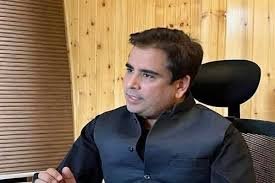Kochi, September 13, 2025 : The Pahalgam terror attack severely impacted the tourism industry in Jammu and Kashmir, resulting in losses worth crores of rupees in revenue, said Jammu & Kashmir National Conference (JKNC) MLA Tanvir Sadiq on Saturday.
Speaking to the media on the sidelines of the Urban Conclave in Kochi, where he represented the Jammu and Kashmir government, Sadiq highlighted that hundreds of hotel and ‘Shikara’ bookings were cancelled following the attack, as tourists became apprehensive about visiting the region.
“Every booking got cancelled as tourists were scared to proceed with their travel after the terror attack. It crippled our tourism sector,” said Sadiq, who also serves as the chief spokesperson and Communication Incharge of JKNC.
The MLA added that despite the initial setback, the tourism industry is gradually recovering. “Thanks to the support of the people of this country, we are back on track, and more and more tourists are now visiting Jammu and Kashmir,” he asserted.
On April 22, 2025, terrorists opened fire at a popular meadow near Pahalgam town, killing 26 people, most of whom were tourists. This attack not only affected tourism but also severely hit the local economy, especially apple farmers.
Sadiq further explained that political instability and terrorism have long affected Jammu and Kashmir’s economy. “It is normal that everyone suffers in a UT where there is no stability. Farmers faced huge issues transporting their produce due to poor connectivity between Srinagar and other parts of the region,” he said.
He welcomed the introduction of a train service for freight movement, which has helped the sector slowly revive. “What we demand now is an increase in the frequency of these trains to boost trade and economic recovery,” the MLA added.
Congratulating the Kerala government for organizing the Urban Conclave, Sadiq said Jammu and Kashmir could learn a lot from Kerala’s experience in tourism promotion and planned urban development. “This conclave is an excellent initiative. We should replicate such policies in Jammu and Kashmir, especially to manage extreme weather challenges that cause huge damage to infrastructure,” he concluded.



















